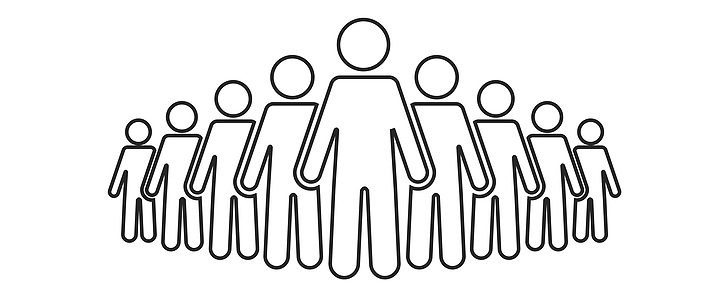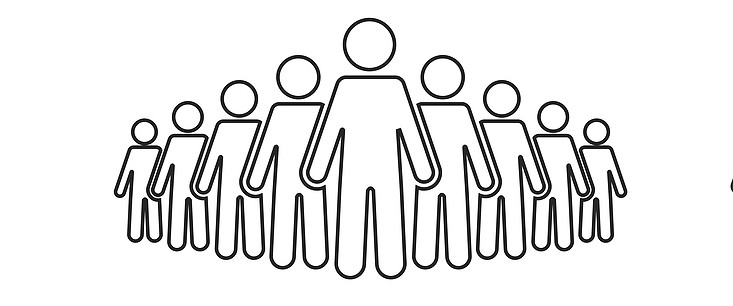Why white evangelical Christians support President Donald Trump in such large numbers is not the most interesting question to ask, according to Frank Newport, editor-in-chief of the Gallup Poll. A more interesting question is to ask whether white evangelical Christians will ever waver in their support of Trump.
Newport, who was raised as the son of a prominent Southern Baptist seminary professor and hails from a long line of well-known Southern Baptist leaders, has personal knowledge of the evangelical Christian world. Drawing upon that expertise, he recently wrote a post for Gallup addressing the relationship between white evangelicals and Trump and parsing the very definition of the word “evangelical.”
A relationship that predates Trump

Frank Newport
“These structural patterns of association between evangelicalism and conservative politics were well in place before Trump came onto the presidential scene,” he wrote. “Whites who identify as Protestant and as evangelical have long supported Republican candidates. Trump is simply the latest in this line.”
Observers should, by default, expect white Protestant evangelicals to vote Republican, he said. “The question of interest is what it would take to change this baked-in pattern. Most particularly, I am often asked about the possible defection of evangelicals from supporting Trump in this election due to the fact that his religious history and personal behavior is far from the typical candidate who appeals to religious voters.”
So far, he doesn’t see that defection happening, Newport added. “Trump has helped shore up his evangelical support with special efforts to push policies and executive orders that resonate with rank-and-file evangelicals and their leaders — policies related to abortion (including Trump’s recent nomination of Amy Coney Barrett to the Supreme Court), religious freedom, school choice and Israel.”
Even specific outreach to the Christian community by Joe Biden’s campaign — and the fact that Biden is a devout Catholic — appears to have moved the needle little among white evangelicals, Newport wrote. But this outreach is having some effect on the Catholic vote.
Separate polling by another researcher and author raised Southern Baptist, Robert P. Jones, affirms Newport’s historical analysis and notes that the gap between white evangelicals and other white Christians is growing. Jones and his PRRI survey noted “emerging daylight between the views of white evangelicals on the one hand and white mainline Protestants and white Catholics on the other.”
76% of white evangelical Protestants still approve of the job Trump is doing, compared to 52% of white mainline Protestants and 49% of white Catholics.
Among that data: 76% of white evangelical Protestants still approve of the job Trump is doing, compared to 52% of white mainline Protestants and 49% of white Catholics. Also, white evangelical Protestants are the only religious group in which less than a majority (44%) say the spread of COVID-19 could have been controlled better.
The latest data from Pew Research shows white Protestant evangelicals plan to vote for Trump over Biden by a ratio of 78% to 17%. And a Washington Post/ABC News poll finds Trump leading Biden among white Protestant evangelicals 79% to 20%.
Who is an evangelical?
While reporting on such polls routinely uses the word “evangelical” to describe this voting bloc, not all polls are measuring the same group of people, Newport said in his column. He quotes Baylor University historian Thomas Kidd, who says the term “evangelical” has been used in the United States since the early 1800s.
In his book Who Is an Evangelical?, Kidd wrote: “The word evangelical itself is a source of confusion: Scholars, journalists and the public can’t seem to decide what it means.”
From a pollster’s perspective, there are three ways to think of this, Newport explained.
“The first uses individuals’ specific beliefs, experiences and intimate religious connections as the criteria for inclusion as an evangelical,” he said. Kidd defines evangelicals as those who self-identify as “born again” and Protestant and who “cherish the Bible as the word of God and who emphasize a personal relationship with Jesus Christ through the Holy Spirit.” Barna Research has created nine qualifying questions related to personal beliefs and practices.
A second approach uses denominational identity to classify who is an evangelical, Newport continued. “This is a challenging procedure given the huge number of Protestant denominations in the U.S. today. It requires probing Protestants to obtain their specific denominational identity, plus a post-survey process of classifying denominations into categories based on decisions about which denominations are, and are not, evangelical. Additionally, not all members of any one denomination are the same.”
A third option
Because options one and two are “cumbersome and difficult to use on an ongoing survey basis,” Gallup and others use a third approach to identifying evangelicals, Newport said: “Asking people if that label does or does not fit their view of themselves.”
Gallup most often asks survey respondents if they identify as “born again, or evangelical.”
Gallup most often asks survey respondents if they identify as “born again, or evangelical.”
There are limits to this approach, though, Newport added. “If we assume that the American population at large is aware of the common connection between evangelicals and conservative, Republican support for Trump, we can assume that this association could affect a respondent’s willingness to self-label as evangelical.”
Nevertheless, there is one clear correlation Gallup has found among those who self-describe as evangelicals — religiosity.
“Some 61% of white Protestants in Gallup data from 2017 to 2019 who said yes to the ‘born again, or evangelical’ question reported attending religious services every week or almost every week, compared with 25% of those who said they were not ‘born again, or evangelical.’ And 78% of white Protestants who identified as evangelical said religion was very important in their lives, compared with 33% of white Protestants who did not identify as evangelical.”
Newport concluded from this: “Whatever else white Protestants’ affirmative response to the evangelical question may reflect, it is strongly related to frequent church attendance and the personal importance of religion in one’s daily life. Thus, I think it is fair to say that when we use the term ‘evangelical’ in a political context today, we are basically talking about white Protestants who are very religious.”
Related articles:
Who will America’s pastors vote for in presidential race?
This year’s tug of war over the Catholic vote and why it matters
Mormons and the 2020 presidential election: It’s complicated
Is religion more important amid COVID or is this just a phase?


